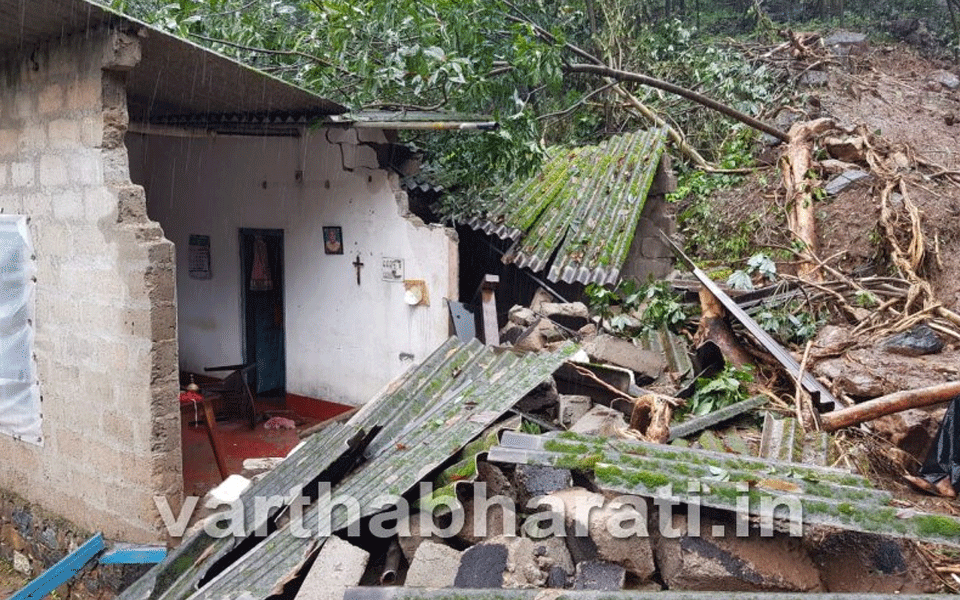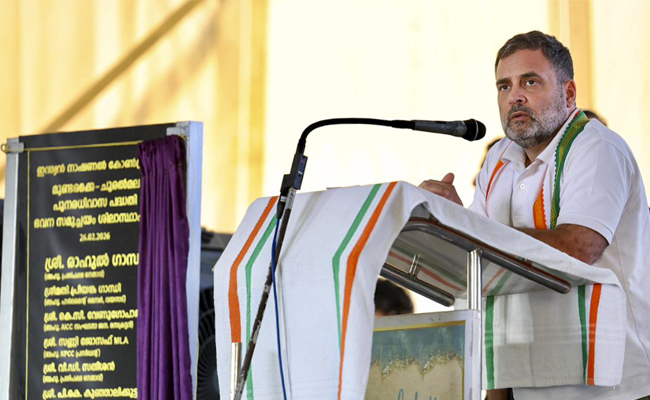Belthangady, August 9: Hundreds of rubber trees were washed away in the water due to a major landslide creating a new stream near Gandi Bagilu of Neriya village in the taluk and two houses were also damaged in the incident.
A house belonging to Renni was also washed away in the gushing water and the family members escaped unhurt. The incident happened at 7 am. Renni, his wife and two children ran out of the house hearing the sound. Surprisingly, 70-year-old Eliyamma who was sleeping inside the house escaped miraculously. She sustained minor injuries as the water washed away the wall of the room where she was sleeping.
Rubber trees were also damaged in the incident. A tank situated in the plantation belonging to Joseph was also covered with mud and more than hundred areca trees were washed away. The intensity of the incident was so much that it has created a big sound with the sliding of an entire hill due to which a canal was created. Till now, the water is flowing in the canal. A few years ago, two houses were washed away in the same kind of incident in Neriya village.



Let the Truth be known. If you read VB and like VB, please be a VB Supporter and Help us deliver the Truth to one and all.
Jammu (PTI): Police on Tuesday recovered an aeroplane-shaped balloon marked 'PIA' in Rajouri district, officials said.
A red and white aeroplane-shaped balloon bearing the text 'PIA' with Urdu was found in Sarhoti village under the Dharamsal Police Station, they said.
Locals alerted authorities after spotting the object.
Cops from Police Post Teryath reached the site, secured the balloon, and seized it, they added.
Earlier, on February 23, two balloons with a Pakistani Rs 5,000 currency note and a US dollar attached were recovered from Gunara village in the Akhnoor sector near Jammu.





